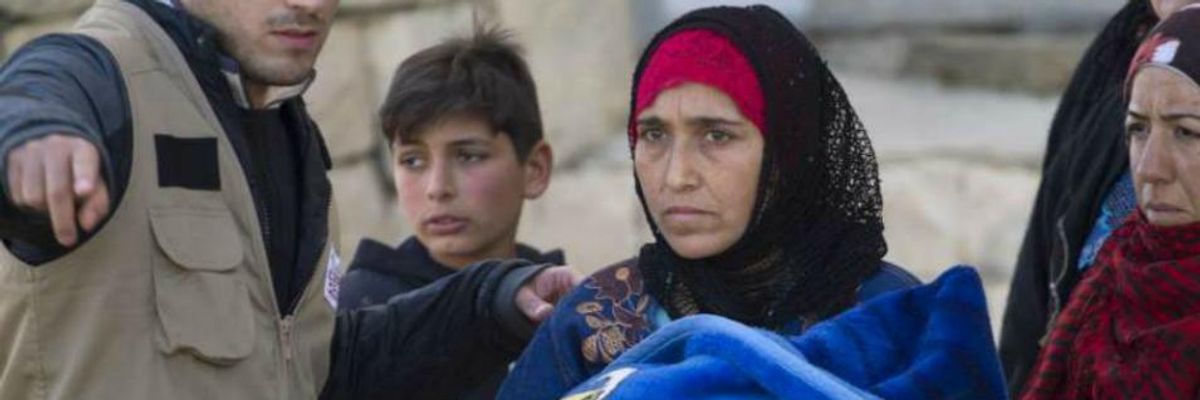The U.S. Ambassador to Lebanon announced Thursday that the United States will soon supply the Lebanese military with additional weaponry to help "secure Lebanon's borders, protect Lebanon's people, and fight these violent extremist groups."
The assistance comes after Lebanon requested emergency aid following deadly clashes earlier this month with Sunni militants in the eastern Arsal region of the country, on the Syrian border. In five days of fighting in early August, 19 Lebanese soldiers and more than 50 civilians were killed, with many more wounded; seven soldiers are still being held hostage by Islamic State in Iraq and Syria (ISIS), and nine more are being held by Al-Nusra Front, a branch of Al Qaeda operating in Syria and Lebanon.
In addition, the battle forced thousands of women and children to flee, including Lebanese civilians and Syrian refugees seeking shelter from their own country's civil war. The UN estimates that by the end of this year, there could be close to 1.5 million Syrian refugees in Lebanon, which has long been the site of proxy wars in the Middle East.
Since 2006, the U.S. has provided more than $1 billion in military training and assistance to Lebanon's armed forces, $120 million of that since October 2013.
Those numbers pale in comparison to what Saudi Arabia has pledged since December: $3 billion for weaponry as long as it's purchased from France, plus an additional $1 billion in direct aid.
The ambassador's announcement indicates willingness on the part of the U.S. to work with the Lebanese government despite the sizable influence, in both the military and political spheres, of Hezbollah, the Shiite Islamist militant group that the U.S. describes as a terrorist organization.
An Inter Press Servicearticle last week quoted Yezid Sayigh, senior associate at the Carnegie Middle East Center in Beirut, saying that in relation to the U.S. and its financial support for Lebanon, "there seems to have been a strategic decision to continue to cooperate with the Lebanese government, the Lebanese army, and other agencies even when Hezbollah is in a coalition government."
Some speculate that Saudi Arabia's motives for funding the Lebanese Armed Forces may be even more directly related to Hezbollah. In a column written last week, Al Arabiya journalist Abdulrahman al-Rashed offered context for Saudi Arabia's gift, describing it as a "political act" meant to lend legitimacy to the Lebanese army in the face of Hezbollah's stronger forces:
Saudi Arabia could have offered this financial aid to build up a Lebanese Sunni militia and would have had many reasons for doing so, from fighting the Sunni Islamic State of Iraq and Syria (ISIS) to deterring the Shiite Hezbollah and Bashar al-Assad's intelligence forces.
Instead, Saudi Arabia chose to support the army in Lebanon -- a country full of Christian, Druze and Shiite militias...It's not in Saudi Arabia's interest for Lebanon to turn into an arena for sectarian militias fighting each other on behalf of the region's countries.
Strengthening the Lebanese army means weakening Hezbollah's scheme to dominate Lebanon and turn it into an Iranian emirate. It will enable the Lebanese to confront Sunni terrorist organizations which came running behind Hezbollah from Syria into Lebanon in this cat and mouse chase. The events in Arsal have proven the importance of having a strong army that stops the meddling of Hezbollah which sought to clash with Syrian groups under the Lebanese army's flag. Military challenges at state level, from the events in Nahr al-Bared refugee camp to the recent events in Arsal, have proven that it's not possible to trust Hezbollah and that the Lebanese people will not accept that any party besides the army defends their security.
According to the U.S. Embassy in Lebanon, "U.S. military assistance will begin arriving in the next few weeks and continue in the months to follow."

